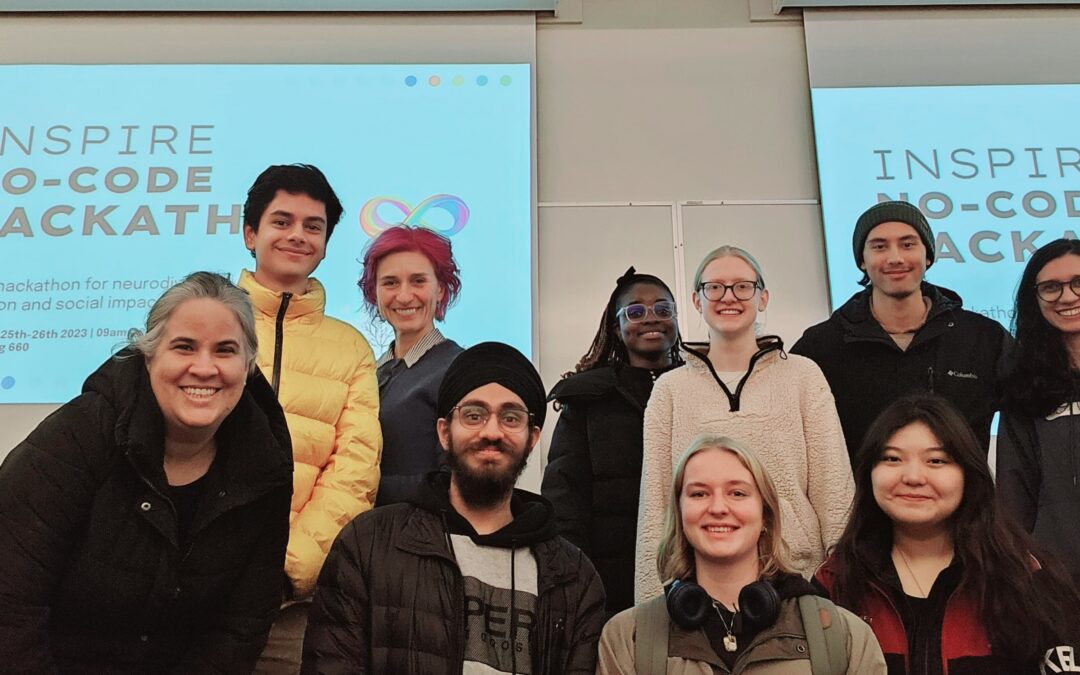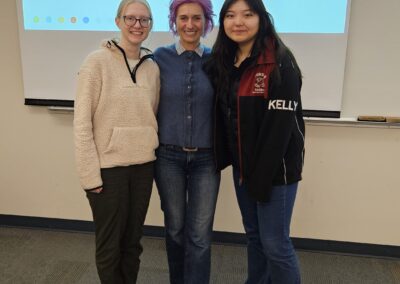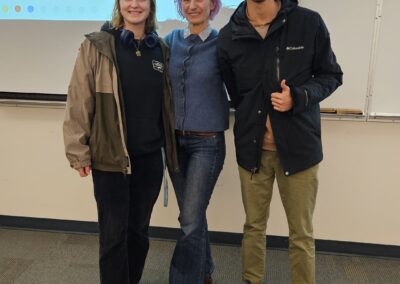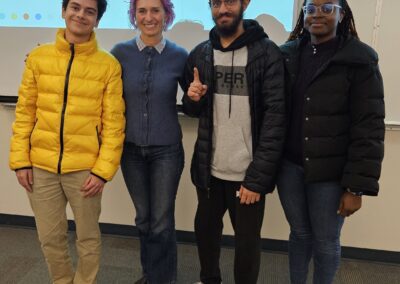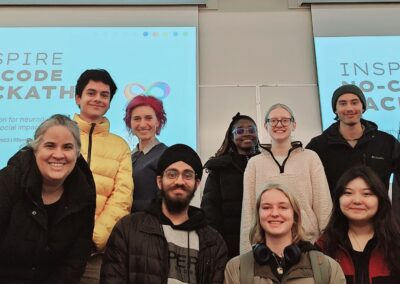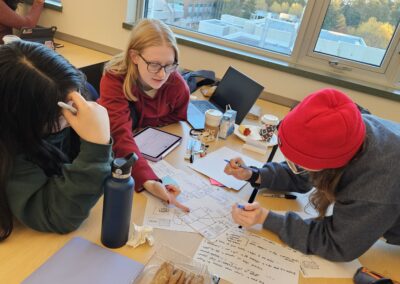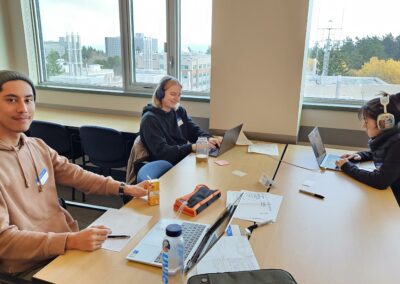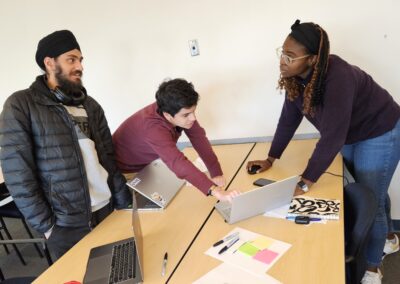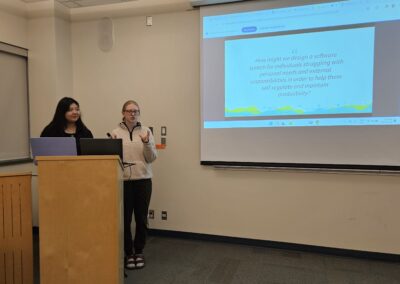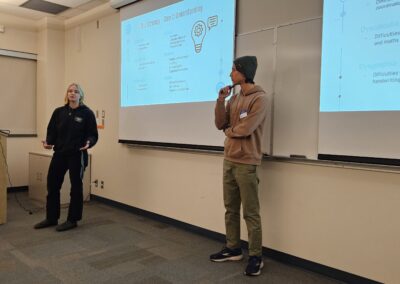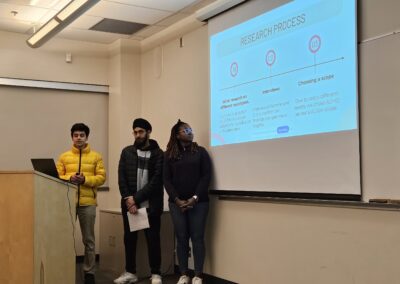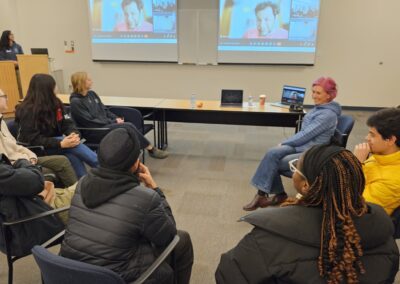On November 25th and 26th, 2023, INSPIRE hosted the inaugural Inspire No-Code Hackathon, centered around the theme of neurodiversity. The event posed the challenge: “Improving the Experience of Neurodivergent Students at University: Can Digital Technologies Offer Solutions?”
No-code hackathons, also known as ideathons, are innovative marathons that focus on low-fidelity prototyping to address specific challenges. These events, by removing the reliance for coding skills, welcome a broader range of participants, including students from various disciplines. The primary objective is to generate structured ideas that address a technical, social, or environmental need. These ideas can potentially evolve into future projects or action plans. Ideathons act as catalysts for novel concepts and serve as tools for open innovation, fostering solutions through fast-paced, collaborative, and interdisciplinary teamwork.
The Inspire No-Code Hackathon welcomed students from diverse academic years and fields, grouping them into teams for a 16-hour collaborative effort. Their goal was to develop digital solutions aimed at enhancing the everyday academic life of neurodivergent students. Neurodivergent individuals, including those with Autism, ADHD, Down Syndrome, Obsessive-Compulsive Disorder, Bipolarity, Intellectual Disability, Tourette Syndrome, Dyslexia, and other atypical neurocognitive conditions, often face challenges such as time management, teamwork, task execution, memory, concentration, social interaction, and communication.
This hackathon saw participation from teams comprising students from Computer Science, Software Engineering, Mechanical Engineering, Civil Engineering, and Mathematics. They focused on addressing various challenges encountered by neurodivergent college students. A unique aspect of this hackathon was its adherence to the principles of Design Thinking. Participants were required to conduct interviews with neurodivergent individuals during the Empathize phase and validate both the problem statement and their proposed solutions with the target audience throughout the process. The winning solution, the “Brain Teaser – Auto-Generative Quiz Platform” developed by students Pouria Tolouei, Mansahaj Popli, and Ucheoma Okoma, is an app designed for individuals with ADHD. Integrated with BrightSpace, it features quizzes and drawings as part of a reward system, aiming to maintain attention and stimulate dopamine production when beginning new tasks in a course.
The Inspire No-Code Hackathon was organized by the Inspire Program, with support from the UVic SSD – Society for Students with a Disability. The event was distinctive in involving neurodivergent individuals in all aspects of the hackathon, including organization, participation, mentoring, and judging, thereby fostering social impact solutions created not just for, but with, neurodivergent individuals.

